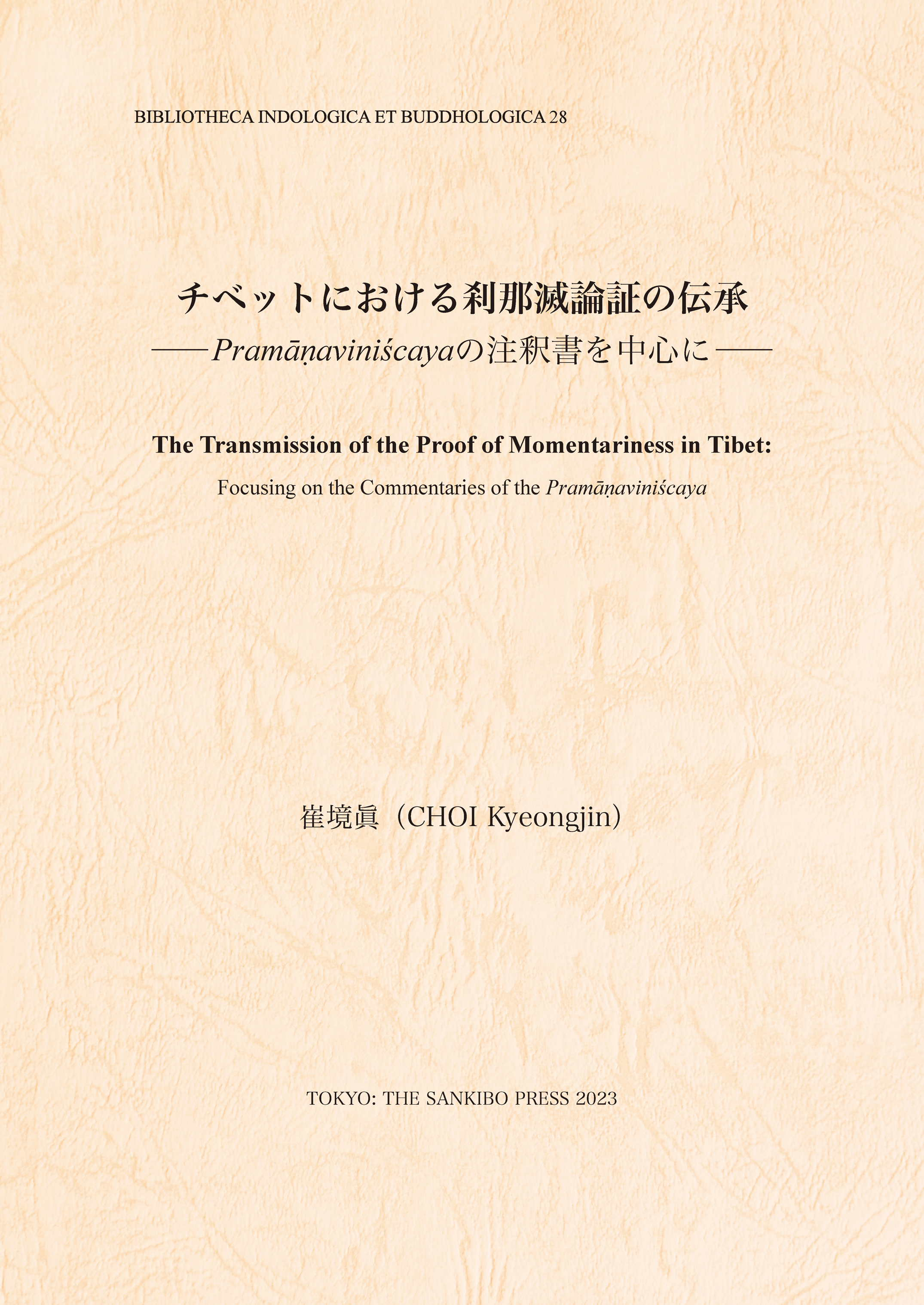
Title
Bibliotheca Indologica et Buddhologica Chibetto ni okeru Setsunametsu Ronsho no Densho (The Transmission of the Proof of Momentariness in Tibet - Focusing on the Commentaries of the Pramāṇaviniścaya)
Size
296 pages
Language
Japanese
Released
March 30, 2023
ISBN
978-4-7963-0327-9
Published by
Sankibo Busshorin
Book Info
See Book Availability at Library
Misc.
Other Language: Tibetan
Japanese Page
Buddhism teaches that everything is in a constant state of change and that nothing lasts in a fixed form. This concept is known as "Shogyo Mujo," or "all things must pass." The most obvious example is the human mind. People often talk about religious beliefs, determination toward a goal, trust in others, solidarity with loved ones, and other things assumed to be unchanging without a prior deep reflection. However, in reality, the state of the mind undergoes unconscious shifts, branching out in many directions. Similarly, objects such as desks, computers, and chairs deteriorate over time, lose their functionality, and are eventually destroyed. People tend to seek constancy in these objects and become attached to them, but without exception they witness their impermanence and experience suffering to some extent. The teaching of "all things must pass" aims to break our attachment to material things and be free from suffering.
The philosophy behind this teaching has been rooted in the history of Buddhist thought. Buddhist scholars discussed the doctrine stating that things arise and are destroyed in an instant (= moment), beyond the realm of human perception, referring to the idea of "momentariness." Since this momentariness is beyond our human perception as unenlightened individuals, we can only perceive it logically. The reasoning of momentariness that thus appears is the "proof of momentariness" discussed in this book.
This book is based on the “proof of momentariness” by Dharmakīrti, a Buddhist monk who lived in India (ca. 600‒660). It traces various commentaries on his work Pramāṇaviniścaya ("Deciding on the Valid Cognition by Overcoming Doubts") by monks of the bKa' gdams pa school of Tibetan Buddhism, elucidating the process of ideological change and development.
Although there are numerous previous studies on the proof of momentariness in Indian Buddhism since the 1960s, the proof of momentariness in Tibetan Buddhism has not been studied adequately. The writings of the bKa’ gdams pa school, which was active from the 11th to 14th centuries, are traditionally scattered, with limited materials available to modern researchers.
However, in the 2000s, a collection of bKa' gdams pa literature was discovered and published as the Complete Works of the bKa' gdams pa, which made it possible to directly verify bKa' gdams pa thought. This book focuses mainly on these newly discovered materials in the Complete Works of the bKa' gdams pa, using them to examine how the interpretation of the proof of momentariness changed in Tibet from the 11th century onward.
When an idea emerges, over time the region where that idea is discussed changes, as does the language. Over the course of hundreds of years, the idea takes on new meanings beyond its original ones, and even expands its scope of application by linking with other concepts. The idea of momentariness also developed in this way. This book illustrates a part of this process.
(Written by: CHOI Kyeongjin / May 19, 2023)
Related Info
The 3rd UTokyo Jiritsu Award for Early Career Academics (The University of Tokyo 2022)
https://www.u-tokyo.ac.jp/ja/research/systems-data/n03_kankojosei.html



